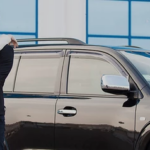Make a good choice – Always plan a safe ride home.
Make a good choice - Always plan a safe ride home.
We’re here to teach you about the dangers of driving while under the influence of alcohol or drugs.
Drinking alcohol or doing drugs and then driving are both forms of impaired driving.

Alcohol-impaired driving
Alcohol is an addictive drug that depresses the brain. Blood alcohol content (BAC) is affected by many factors. Some include:
-
gender
-
physical condition
-
weight
-
medication
-
Alcohol is quickly absorbed into the blood stream and enters the central nervous system. Right away, it affects how your brain functions and your driving abilities. Because of this, alcohol is 1 of the leading causes of fatal crashes in Saskatchewan.
Young drivers
Inexperienced drivers of all ages, especially those aged 16 to 20, are at a higher risk of crashing after drinking (even when they drank a small amount of alcohol). Remember, there is zero tolerance for drugs or alcohol for all new drivers, including anyone in the Graduated Driver Licensing program.
We encourage new and young drivers to get involved with our awareness partners to learn about alcohol prevention.
Drug-impaired driving
Drug-impaired driving is a serious issue. Don’t make the mistake of believing that drugs don’t impair a person's ability to drive.
Safe driving needs specific skills:
-
clear judgment,
-
concentration, and
-
the ability to react to what happens on the road.
-
Drugs affect all of these skills, and not just illegal drugs. Cannabis, prescription drugs, and even over-the-counter medicines, can interfere with your driving skills.
Taking more than one drug, or mixing alcohol and drugs, and then driving is even more dangerous. Driving after you’ve taken drugs of any kind puts you at greater risk of injuring or killing yourself, your friends or other innocent people.
Avoid driving impaired
Remember, it’s never OK to drive impaired. If you drink or do drugs, don’t drive. If you need to get from 1 place to another:
-
pick a designated driver,
-
call a sober friend or family member,
-
call a cab or a designated driving service, or
-
take public transportation.
-
Drink responsibly
-
Have something to eat before you start drinking; never drink on an empty stomach. Eating won't stop you from getting drunk, but the food spreads out the alcohol absorption over a longer period of time.
-
Pay attention to how strong your drinks are.
-
Don't be offended if someone suggests you've had too much to drink to drive safely. They’re probably right and only looking out for you. Friends don't let impaired friends drive.
If you aren't sure whether you're impaired, you probably are. Alcohol impairs even that basic judgment. It’s better to be cautious then to take a chance and regret it later.
Don't be a passive passenger
Talk about your plan for the evening and make a clear decision about who is driving home. If there are problems, pick an appropriate time to express your concerns calmly and rationally. Be ready to suggest other options.
As a back up plan, bring along enough cash to pay for a cab home
Don’t ride with a driver who has had too much to drink. Call a friend or relative.
Monitor your friend's drinking. Watch for signs of intoxication. Suggest non-alcoholic drinks and food.
If your friend suggests that you drive home because you have had less to drink, and you don't feel safe doing so, say so and find another, safe way home.
Serving alcoholic beverages
Don't push drinks on your guests. If they say 'no thanks,' offer them a non-alcoholic drink. Always have non-alcoholic choices on hand.
Avoid an open bar – people are more likely to drink more than usual, and you won’t have any control over how much they drink.
Put food out during the evening. But remember that salty snacks can make people drink more.
Don't drink too much yourself. You need to be able to notice changes in your guests’ actions. If someone is getting a little too noisy or rowdy, you can stop serving them drinks. You also have to watch to make sure your guests haven’t had too much to drive home safely. If they try to leave, then it’s up to you to stop them. If you’re intoxicated yourself, you won’t be able to judge this properly.
Stop serving drinks a few hours before the party's over. Offer food and non-alcoholic drinks and encourage your guests to have some before they go home.
Have cash on hand for cab fares. Also, be ready to let your guests stay the night.
-
When you invite guests, remind them ahead of time that alcohol will be served and they should make a plan to:
-
get a sober ride home from a friend or relative,
-
take a cab or a bus,
-
use a designated driver,
-
call a designated driving service, or
-
stay overnight.
-
Consequences of driving impaired
Here are the penalties for impaired driving:
-
new drivers – immediate roadside suspensions
-
experienced drivers – immediate roadside suspensions
-
all drivers – Criminal Code suspensions
-
impaired driving education
-
vehicle impoundments
-
Ignition Interlock Program (IIP)
SGI has authority over driving rules (and what happens if you don’t follow them) based on:
-
The Traffic Safety Act
-
The Driver Licensing and Suspension Regulations, 2006
-
The Vehicle Impoundment (General) Regulations, 2014
-
Awareness partners
-
Impaired driving continues to be the leading cause of fatal collisions in Saskatchewan. Along with our partners, we work to prevent impaired driving with education and awareness.
Students Against Drinking and Driving (SADD)
SADD is an organization of young people who work to prevent friends and family from drinking and driving – the leading cause of death for people under 35.
With 90 chapters across the province, SADD believes young people with positive attitudes have the best voices to save lives and prevent injuries from drinking and driving.
SADD Saskatchewan has a variety of different materials available for schools interested in impaired driving prevention programs.
Contact SADD
For more information or to start a chapter in your area, contact SADD:
1-306-757-5562
Mothers Against Drunk Driving (MADD)
MADD is a non-profit, grassroots organization that’s committed to stopping impaired driving and supporting the victims of this violent crime.
With it’s 2 chapters and 2 community leaders across the province, MADD Saskatchewan works to:
offer support services to victims create more awareness about the dangers of drinking and driving save lives and prevent injuries on our roads
Contact MADD
For more information or to start a chapter in your area, contact MADD at:
1-800-665-6233 (toll-free)
Saskatchewan Chapter Services manager:
1-855-525-6233 (toll-free)
306-522-6233

